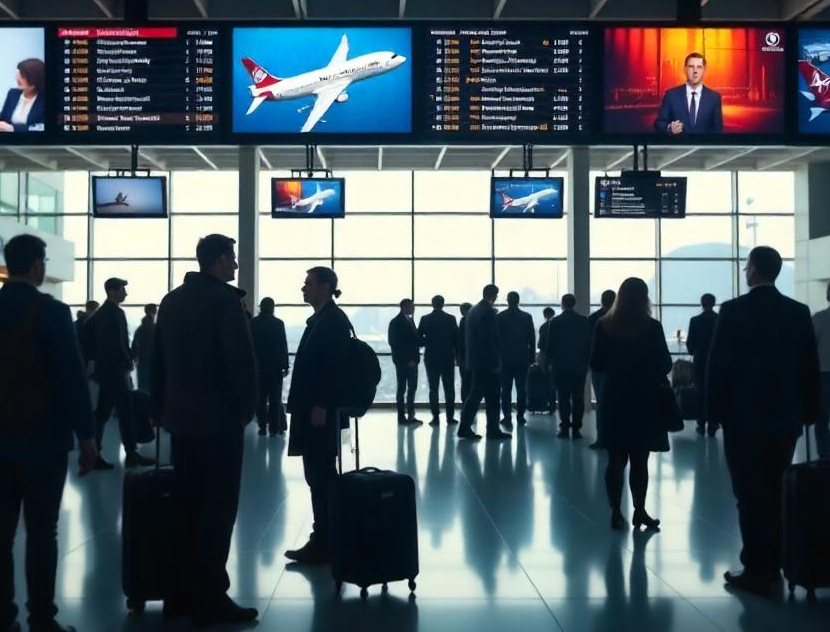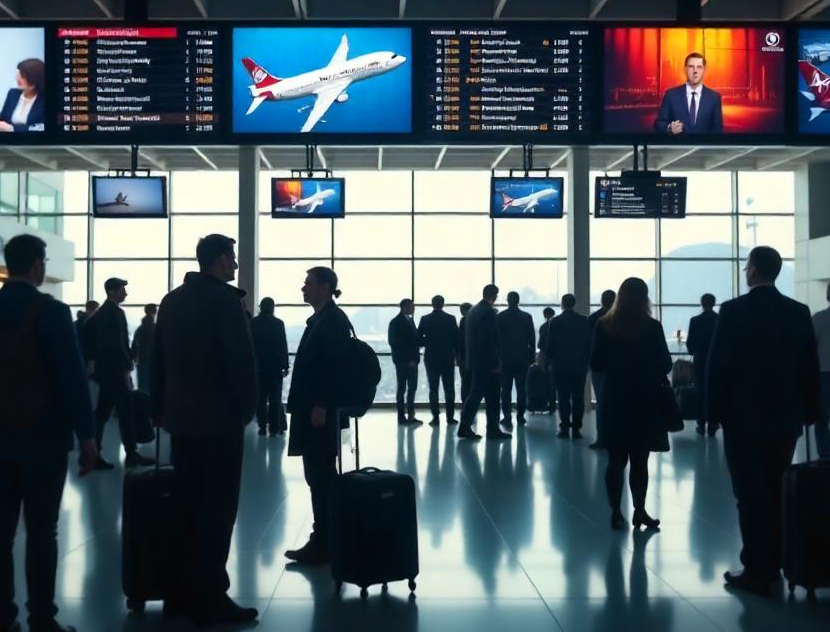Sunday, July 20, 2025

As the summer travel season peaks, travellers bound for Europe are advised to remain vigilant amid rising geopolitical tensions that may significantly impact popular tourist destinations. Expert analysis suggests imminent disruptions following recent escalations involving NATO countries and Russia.
UK Warned of Looming Travel Chaos Amid NATO Crisis
The United Kingdom has issued strong travel advisories following alarming statements from former British Army chief, Lord Dannatt. He cautioned that Russia’s President Vladimir Putin could launch a strategic incursion into a NATO territory, potentially plunging Europe into uncertainty and dramatically affecting travel and tourism across the continent.
Lord Dannatt, who previously led the British Army, emphasized that the UK and other NATO members must urgently bolster defenses to deter Russian military ambitions. His warnings highlight the seriousness of the situation, advising travelers to closely follow government-issued guidelines before traveling.
Russia-Europe Conflict: Tourist Hotspots at Risk?
Previous conflicts involving Russia, including the annexation of Crimea and the ongoing war in Ukraine, have already reshaped Europe’s travel landscape significantly. Tourist favorites like Poland, Estonia, Latvia, Lithuania, and other Eastern European NATO allies are closely monitoring developments, anticipating potential disruptions.
Travelers exploring these culturally rich nations should prepare for possible adjustments to their itineraries. Heightened military presence, tightened border controls, and enhanced security protocols are expected to become more visible.
Travel Industry Braces for Impact Amid Defense Spending Surge
European travel and hospitality sectors are closely watching the Strategic Defence Review (SDR), which proposes significant increases in defense spending across NATO nations. The UK’s recent pledge to allocate up to 3% of GDP towards military preparedness indicates increased urgency. This heightened security atmosphere may affect travel logistics, airport procedures, and cross-border travel, potentially impacting travelers’ plans.
The SDR outlines vital recommendations, emphasizing the importance of modernizing defense capabilities. However, Lord Dannatt argues that insufficient action might expose the region to unpredictable risks, indirectly affecting travel security and confidence among international tourists.
Potential Nuclear Risks Amplify Traveler Anxiety
In his starkest warning yet, Lord Dannatt described potential scenarios involving nuclear risks, conscription, and significant changes in national priorities from welfare to warfare. While these remain worst-case scenarios, the mere suggestion has triggered heightened awareness among travel agencies and tour operators. They are now enhancing contingency plans and providing comprehensive advisories to customers traveling within Europe.
Destinations popular with UK travelers, including Spain, France, Germany, and Italy, have not directly indicated immediate threats, yet authorities are alert and responsive to changing situations. It is advisable for travelers to maintain updated information from official sources and remain flexible in their travel planning.
Travel Advisory Issued: Stay Informed, Stay Safe
Travelers planning trips to Europe are encouraged to frequently consult official travel advisories from UK government websites, register with their local embassies, and ensure they have adequate travel insurance covering unforeseen disruptions due to geopolitical tensions.
With international relations increasingly unpredictable, the travel sector strongly advises proactive planning and caution. Travel operators recommend tourists avoid regions identified as potentially volatile and maintain open communication with local authorities and accommodation providers.
Navigating Europe’s Shifting Travel Landscape
Amid warnings of potential geopolitical crises, seasoned travelers are recommended to adopt a cautious yet optimistic approach. By staying informed and prepared, tourists can safely enjoy Europe’s cultural and historical treasures while responsibly navigating potential disruptions.
The evolving situation warrants a balanced perspective—awareness without panic. With timely information and careful planning, travelers can continue to explore Europe’s timeless attractions, ensuring memorable journeys even in uncertain times.
You’ll find an enhanced 300‑word travel alert update below, recently researched to provide more credibility and engagement:
Poland, Estonia, Latvia, Lithuania Now UK and Europe On Alert Nato Russia Crisis Countries Telling Tourists to Check Safety Right Away
If your summer travels will take you to Europe — and particularly to the eastern nations like Poland, Estonia, Latvia and Lithuania, or hot spots to the west like the U.K., France, Germany, Italy and Spain — you need to read this travel roundup. Now, experts are warning that rising tensions between NATO and Russia could spill across the continent, disrupting tours, flights and even border controls.
Why This Matters to You
Vladimir Putin ‘could gamble on invading our friends’ countries to test Nato’ warns ex-British Army boss Lord Dannatt setting off a domino reaction across Europe to make it plain it’s just a game of chess This change in position in the military could lead to travel advisories, checkpoints at the border, and a possible (mishap) draft recall — for sure a “nuclear nightmare” citizens will need to mind their Ps and Qs to deal with.
Travel Chaos: The Other Pandemonium Implicates More Than Politics
Huge chunks of that have already happened in the form of around July’s—3,700-flights-a-day—deregistration of French air traffic controllers that resulted in some 1,400 cancelled flights—but the hurt has been decidedly lopsided in respect to commercial pain to France (Spain and the UK too, of course) (KLM, Business Insider). Governments may restrict use of their airspace or order flights to re‑route in more tense times, and that can also make options like the Eurostar train more appealing.
Official Advisory Action Levels: Don’t Turn Your Back
UK Foreign Office, US State Department both now warning people to be a bit more vigilant in Poland, Baltics, Germany, France (Travel. gov, GOV.UK, GOV.UK).
Russia is on a “do not travel” advisory for reasons including drone threats, military build-ups and more (UNITED24 Media).
On-the-Ground Security Measures
NATO Summits – The last one was in the Hague (Hague) – and there you had countries like the Netherlands and Estonia increasing security checks in airports, over-crowding public transportation and creating security zones around the Summit. And these are the sort of restrictions that will undoubtedly be extended to Europe if the current tensions persist.
How Travelers Should Prepare
Consult your embassy’s official advisories
Monitor flights and train status; Research the possibility of alternative rail travel
Register on the embassy notification systems (STEP, GOV.UK subscriptions etc.)
Verify whether travel insurance covers political unrest
Keep it flexible — you may need to reroute or reschedule on short notice
The pull of Europe is magnetic — but with information and a plan, you can keep traveling confidently and take one step closer to fulfilling your travel dreams.

